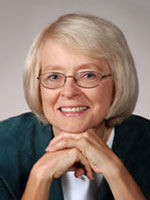

We’re throwing the baby out with the bathwater when we decide retirement means totally giving up work. Giving up the commute, the office curmudgeon, nasty customers, demanding bosses, and the overall stress level of a typical fulltime job certainly make sense when you get far enough that you can. But that’s different than giving up work.
Work is not just about doing a job for pay. Work—sustained effort toward a desired goal–is an essential piece of being human. It connects us to the world, proves we are capable of doing something useful, and makes us think. Work helps give life both structure and meaning. We need work—regardless of whether we are employed.
But once we retire, we need to pay a lot closer attention to doing the right work—the work that makes us happy. During the career years, you barter that right to choose what kind of work you do each day for the sake of a paycheck. You do what the company needs and get paid for spending your time that way.
In retirement, that goes away. You get paid whether you work or not. That sounds like heaven, but for many retirees it’s the road to decline. When you don’t have to do anything, deciding what you do want to do is often much harder. So you either start doing everything—without any satisfaction from the work you’re doing—or you do nothing and get more and more depressed. Once you get stuck in either of those grooves, it’s hard to get out. And both set the stage for health problems.
Work does need to be part of retirement—creative work, volunteer work, seasonal or part-time work, even yardwork, housework, and homework. Every one of these examples involves putting effort toward a worthy goal (even if it’s just getting rid of the dandelions). Completing work confirms your competence and your value relative to the rest of the world. Please let go of this silly idea that you shouldn’t have to do any work once you retire. Think twice before you hire the yard guy, housecleaning service, and go out to eat every night. Continuing to do the parts of that work that bring you joy makes a lot more sense.
To find the right things to put effort into, you need to listen to yourself rather than loved ones, retirement gurus, get-rich-quick experts, or even your spiritual advisor though. Knowing yourself is not a luxury or a silly New Age bluff at this stage of the game. If you want to be happy once you retire, you not only need to know what kind of work you get excited about, you need to know how to structure it and how much of it is enough for your personal satisfaction.
Sounds easy but it’s not. I have wasted years pursuing my writing like I did the jobs I held in corporate America. That meant I lost steam after a few months on a project regardless of how excited I was about it when I started. When I make writing the ultimate and exclusively important priority of my life, I don’t want to be doing what I said I was going to do for the rest of my life in a matter of a few months.
It’s easy to assume that dissatisfied feeling comes from having made the wrong choice about what to do as work. But be sure it’s not a matter of having relied on an outdated approach to structuring it before you scuttle the whole dream. If you make everything else wait until it’s done, start with an unrealistically large pile of it every day, and rush to make it all happen—just like the good ol’ career days—you are on the wrong track. That is not satisfying as retirement.
This is our last, best chance to live a balanced life. Work really does need to be part of it. But so does play, rest, personal adventure, playing with the grandkids, sitting with a sick friend, learning to ride a bicycle, or whatever beckons for you. If you go at the work you choose as if you were back on the job, you gobble the time you need for other things. To get it right at this stage of the game, you need to come up with a way to structure your work time so that it leaves room for the rest and a more comprehensive priority scheme that includes everything that’s important to you in how you plan your day.
Knowing yourself well is essential to getting this right. If you haven’t already done it, that’s your first retirement work. Use Supercharged Retirement or any book that helps you. Talk to a life coach or a spiritual advisor. Think quietly, regularly, and carefully about how you want work to fit into your overall blueprint. Then live that way.
************
Mary Lloyd is a consultant and speaker and author of Supercharged Retirement: Ditch the Rocking Chair, Trash the Remote, and Do What You Love, a manual for building your own best retirement. Her first novel, Widow Boy will be out in 2014. For more, see her website, www.mining-silver.com.

Leave a Reply